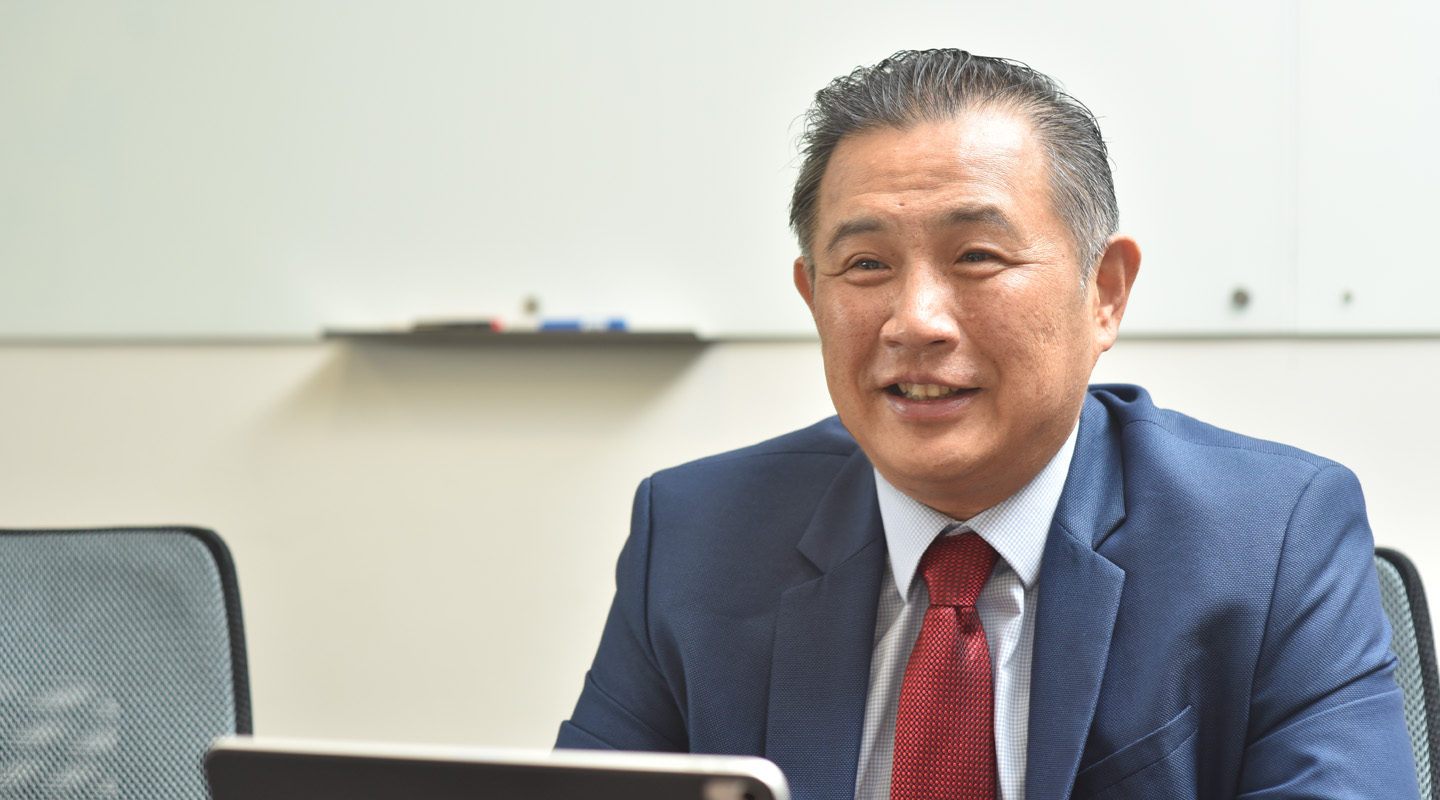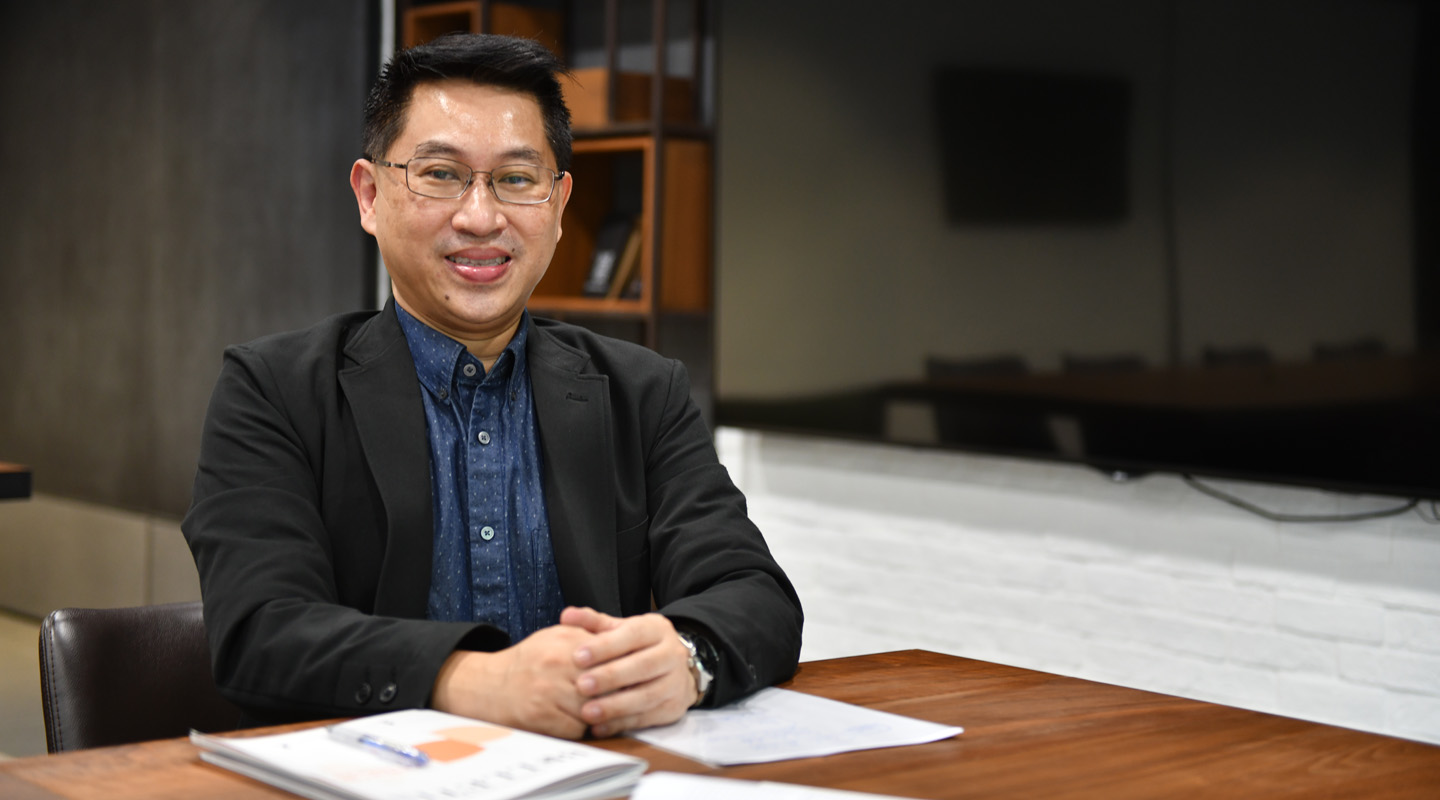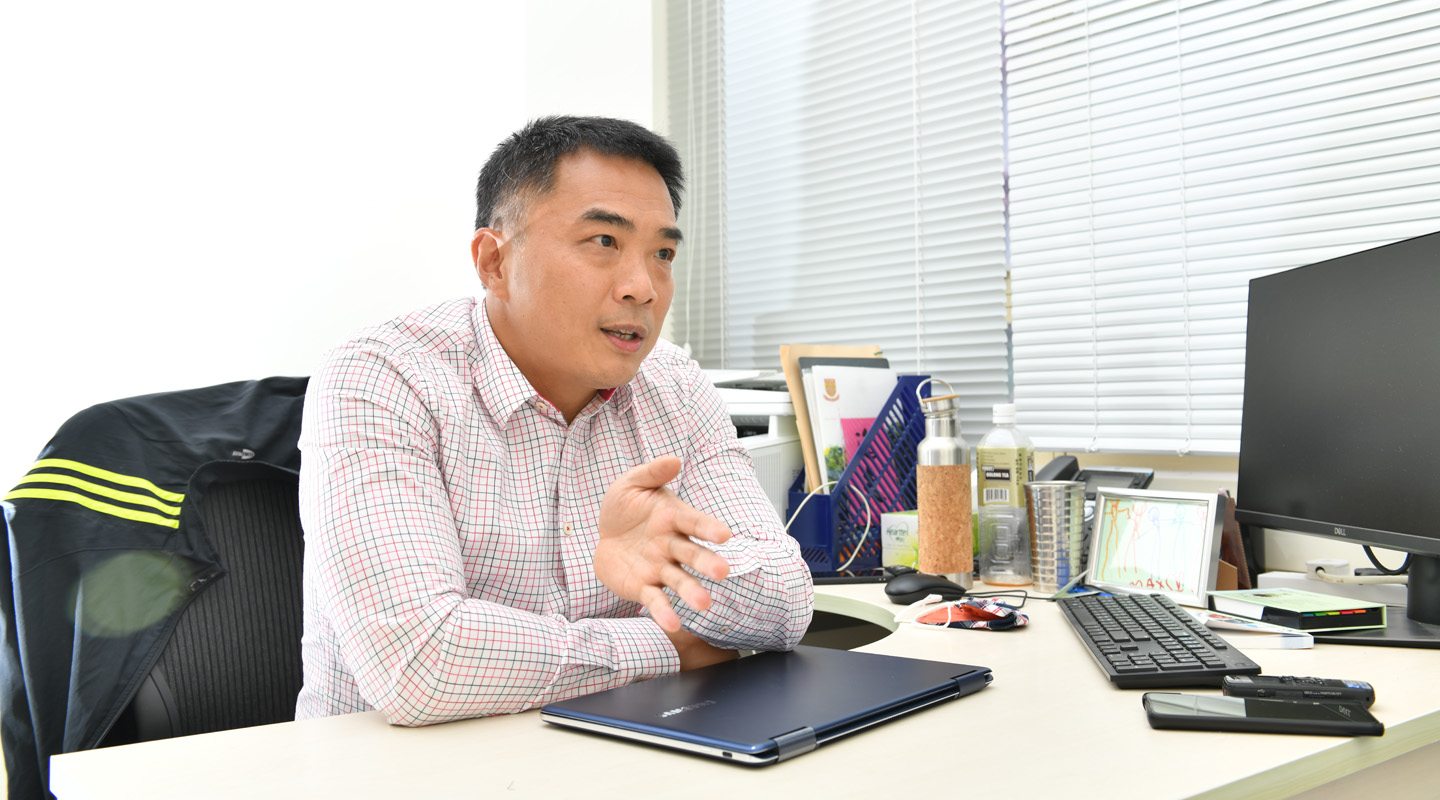Dear readers, With the launch of e-newsletter CUHK in Focus, CUHKUPDates has retired and this site will no longer be updated. To stay abreast of the University’s latest news, please go to https://focus.cuhk.edu.hk. Thank you.
Come Away, O Human Child
Future-proofing the young with AI education

As AI takes root in every aspect of our life, our single most important mission will be to equip future generations with the technical literacy and moral awareness this new age calls for. In the fifth installment of our series on AI, we look at the efforts of CUHK educators to prepare young people for the world of AI.
If there is one thing I have learnt from covering AI, it is the importance of education.
Speaking to our expert sources, each having their own focus, one really begins to see how AI presents unique opportunities and challenges in different fields. And yet with every one of our experts, the issue of education cropped up at some point in their response. Indeed, with all the different revelations AI may have for each area of our life, they face the same problems of being misunderstood or not getting enough attention to begin with. I myself constantly struggled to ask the experts the right questions, having never been formally taught about AI.
How should we move forward from here?
In the past few years, AI education has quickly become a key area of development for universities around the world, CUHK being no exception. In 2019, the Department of Computer Science and Engineering (CSE) launched the Artificial Intelligence: Systems & Technologies (AIST) programme, the first of its kind in Hong Kong. Two years into its inception, Prof. Irwin King, chairman of CSE, counted the programme a success in terms of getting strong students from around the world and with students achieving stellar academic results. And over the past two years, changes have been made to enhance the programme, an example being the addition of a first-year survey course and an elective on applied deep learning to the curriculum. However, Professor King also noted a challenge they are facing.
‘In some ways, it’s a small-scale way of training students. We only have around 40 of them in the programme.’

Surely engineering is not the only field that sees an ever-greater need to teach AI. For instance, the undergraduate Urban Studies Programme now covers an area of concentration on smart sustainable cities, which will involve training students to make use of big data. In a similar vein, the Faculty of Social Science launched the Data Science and Policy Studies (DSPS) programme in 2019. Looking back on the last two years, Prof. Wilson Wong, the programme director, is glad that it has got AI through to all its students despite their different academic backgrounds.
‘As much as we’ve tried to tear down the wall between the arts and the sciences in secondary education, old habits die hard, and yet AI is exactly one of those things that take both worlds to do what it should. This was where our first intake of students ran into some problems,’ said Professor Wong, recalling how those with backgrounds in arts subjects battled with programming and those from science backgrounds had trouble doing humanities studies.
‘It eventually worked out, though, and now all our students can handle both the technical and the human aspects.’

Besides picking up speed in higher education, what more can we do to respond to AI’s rapidly increasing pervasiveness? For one thing, not everyone will attend university, much less specialize in AI. Having in mind an AI education for all, the Faculty of Engineering and the Faculty of Education have partnered to create an AI curriculum for junior secondary students under the CUHK Jockey Club AI for the Future Project. Currently in its pilot phase, the curriculum contains 12 chapters, which cover topics like the principles of AI and how machines perceive and interact with the world. A designer of the curriculum, Prof. Thomas Chiu of the Department of Curriculum and Instruction said it is far more than just about the textbook knowledge and passing exams.
‘While we definitely want students to learn something about AI, it’s also about stimulating interest in the subject such that they will want to find out more about it later in their life,’ said Professor Chiu. ‘What we’re hoping to cultivate is a readiness for AI, which will allow them to live with AI without the anxiety we’re seeing a lot of, even if they’re not pursuing the subject in an academic setting.’
One of the things the curriculum will alert students to is the disruptions AI will bring to the job market. It is inevitable that AI will eliminate certain occupations as both Professor Chiu and Professor Wong pointed out, but it will also free us from mechanical work and allow us to focus on creative tasks. Meanwhile, work in general will require some knowledge of AI the way it requires IT knowledge now. The curriculum, according to Professor Chiu, is precisely designed to prepare students for this future of work.
‘With all the virtual composers, for example, students who want to make music will have to be prepared to take on a more creative role,’ said Professor Chiu, echoing what other researchers have said about humans’ place in art in the age of AI. As Professor Wong reminded us, this will be a great opportunity to finally give attention to developing personal qualities like innovativeness and humanistic thinking, which have been neglected for far too long.
One might question if a junior secondary student is ready to learn about AI given the complexity of the maths and science it involves, but Professor Chiu has an even more ambitious vision.
‘I believe there will eventually be an AI curriculum for primary schools. In some countries, they’re teaching AI at kindergartens, specifically the kind of thinking that goes into developing and using AI,’ he said. ‘We’re well aware this is foundational education, and there’s no way students can learn everything at this level. We can, however, teach them concepts that are appropriate to the things they’re already learning in related subjects, like computer literacy, maths and social studies.’
What else must we do? Early on in our series, we discussed the importance of digital literacy, an awareness of the ethical implications of digital technology as well as the technology itself. Indeed, no one will be truly ready for AI without an education of its ethics, a serious reflection on all the moral concerns we have touched on and many more. In the AIST programme, students are required to take a course addressing some of the ethical issues, and at the Department of Philosophy, a course covering AI ethics is being offered. Similarly, DSPS students are always asked to consider the moral significance of the technological trends they are learning about.
‘Technology should not only be a matter of speed and performance,’ said Professor Wong. ‘What are the pros and cons of a smart city? When does it become a surveillance city? These are the sorts of questions our students get with a chance to look at real-life cases.’
And as grim as some of these problems are, it is never too early for our children to confront them. Aiming for what Professor Chiu calls ‘a local understanding from a global perspective’, the curriculum they are proposing will encourage students to consider topics like autonomous vehicles and machine bias with reference to examples around them while recognizing the extents to which these problems are universal.
But as anyone who have studied in Hong Kong will know, ethics is rarely given much attention in the traditional curriculum, either on its own or in the context of another subject. After all, it is rarely covered in assessments. How are we to ensure that ethical discussions do not become mere footnotes in the new curriculum? While Professor Chiu said the curriculum is not designed to go with assessments, the team did make the effort to put ethics centre stage.
‘In addition to a separate chapter for AI ethics in general towards the end, each of the curriculum’s other chapters get time for ethical discussions specific to its theme,’ he said, explaining how it should not get left out along the way. ‘We’re really giving quite a lot of emphasis to it in our design.’

So what do our educators have in mind for the future of AI education? For both the AIST and the DSPS programmes, a way forward is to encourage students to have a focus.
‘At the end of the day, it’s impossible to learn everything about the field. We would encourage students in their senior years to figure out whether they’re more interested in the tech side of things or policy work and concentrate,’ said Professor Wong. ‘Either way, they will have developed a reasonable capacity for both understanding the social implications of data and working comfortably with data to formulate a policy.’
As for the future of pre-tertiary AI education, Professor Chiu believes it will be necessary for all teachers to have some familiarity with AI, which will probably be incorporated into every school subject at some point. For instance, language education in the future might involve the use of natural language processing (NLP): teachers might find it helpful to teach grammar by letting machines demonstrate how they breakdown and interpret a text. But no matter what we do with AI in classrooms, said Professor Chiu, it must be shown to be at work in the everyday world, which will require cooperation between the school and the community.
‘After all, AI has everything to do with our daily life.’
Indeed it does.
By jasonyuen@cuhkcontents
Photos by ponyleung@cuhkimages
Illustrations by amytam@cuhkimages